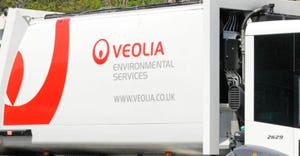Compost Manufacturing Alliance Launches Nationwide Testing Program
Major composters are expanding this practice across four additional processing technologies.
The Compost Manufacturing Alliance (CMA), a private industry group representing six composting industry organizations, is launching a field testing program for compostable food service ware feedstocks across 20 processing facilities in the United States.
The program builds upon 10 years of field testing developed by Cedar Grove Composting in Seattle when, in the early stages of accepting food service products, many items meeting lab based compostability standards failed to adequately break down within their covered aerated static pile system. To address this issue, Cedar Grove developed a field test of its own which allowed them to create a customized list of accepted compostable products. Now, other major composters are joining them to expand this practice across four additional processing technologies- open aerated static piles (ASP), turned windrows, mass beds, and agitated continuous flow tunnel systems.
The CMA partners include New Earth (San Antonio, Katy and Conroe, Texas), WeCare Organics (New York and West Henrietta, N.Y.), A-1 Organics (Eaton and Keensburg, Colo. and Phoenix, Ariz., St. Louis Composting (greater St. Louis area and Belleville, Ill.), Olympic Organics (Kingston, Wash.), and Cedar Grove Composting (Everett and Maple Valley, Wash.).
CMA partners are encouraging other compost manufacturing sites to join them in taking a more proactive role in controlling feedstock quality.
“There is an impressive body of work and ongoing activity by committed people in the consumer products industry to increase composting capacity and the use of compostable packaging, yet most compost manufacturers don’t have the time or resources to engage with them,” CMA Managing Director Susan Thoman said in a statement. “In the meantime, many composters are overwhelmed with plastic contamination, yet they have no real data on how compostable options may positively or negatively affect contamination levels, or which products are appropriate for their respective systems. The CMA model works to connect compost manufacturers and product manufacturers around real-world scenarios so they can engage in a productive and integrated system of problem solving, contamination removal, waste minimization, and product development.”
To qualify for CMA field testing, products must have BPI certification or meet laboratory testing protocols required by ASTM D6400 and D6868 (or equivalent international standards). This ensures that the materials being tested have already met important requirements for phytotoxicity, heavy metals screening, and biodegradation. Samples are then processed by CMA and shipped to designated testing sites where they are placed into facility compost rows. At the end of the active composting cycle, disintegration levels are recorded and communicated back to the manufacturer.
Initial testing rounds will begin in May, 2017 in New York, Colorado, Washington’s Kitsap Peninsula, and the St. Louis area, with subsequent tests in June and July in Seattle and San Antonio.
About the Author(s)
You May Also Like


